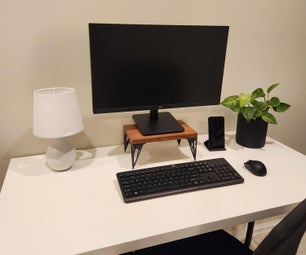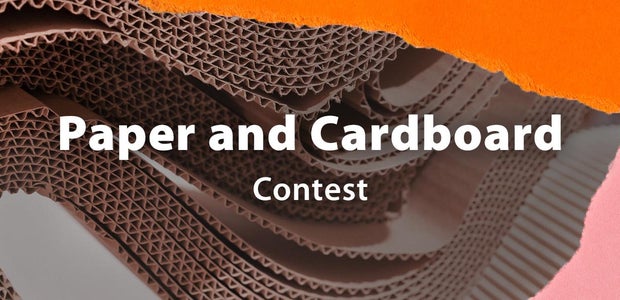Introduction: Rotating Book Shelf End Table
This is a revolving book shelf end table that can rotate 360 degrees. Shown here is the prototype made with 1/4 inch MDF. A final finished version can be made with hard wood. It has shelf areas, a magazine rack, and some small drawers.
Supplies
Tools
- table saw
- laser cutter
- measuring tape
- wood glue
- drill
Materials
- 2 sheets of 1/4 inch thick 4' x 8' MDF or other wood of your choice
- 1/8 inch thick Baltic Birch plywood
- 3 lengths of 1/2 inch half round molding, 8 feet long
- 1 rotary bearing (lazy Susan) approximately 12 inch square or diameter
- 5 drawer knobs/handles of your choice
Step 1: Cut the Octagons
Cut one of the 4' x 8' sheets of wood into quarters, 2' x 4'. From these panels cut the 2' width down to 19-1/8 inches width. Cut this down to form 19-1/8" squares. Repeat with the three other panels until you have seven squares. These pieces will then be cut into regular octagon shapes. The regular octagon can be determined by using a circle of 19-1/8 inch diameter and inscribing the octagon within the circle. Cutting the corners off the square at a 45 degree angle with the saw blade tangent to the circle will produce the regular octagon. verify your angle is correct by using a 45 degree triangle to check the saw angle. Reserve two of the triangular cut offs for use as an angle bracket when mounting the shelves.
Attachments
Step 2: Cut Out the Tray Slot Pieces
Refer to the photos and diagrams for cutting the tray pocket section. Use one of the octagons for the tray bottom and one for the tray slot.
Step 3: Cut Support Panels, Shelves, and Drawer Faces
Cut three support panels. The support panel for the magazine rack is 11-1/2" x 21-7/8". The drawer support panel is 9-3/8" x 21-7/8" and the panel for the shelves is 17" x 21-7/8".
Cut four large drawer faces, 7-1/8" x 4-7/8" and one small drawer face 7-1/8" x 1-3/4".
Attachments
Step 4: Glue Base Octagons Together
Glue two of the octagons together to form a 1/2 inch thick slab. Glue two more octagons together to from a second slab. These will be used to mount the rotary bearing. Alternatively, you could use two 1/2 inch thick pieces of wood instead of gluing four 1/4 inch pieces.
Step 5: Assemble Support Panels to the Base
Refer to the photo and the diagram for placement of the support panels. Draw a line every 5 inches from the bottom of the drawer wall and the adjoining wall of the magazine rack. Glue 5-1/2" lengths of the quarter round molding along the lines. These will be the drawer guides. Cut lengths of the 1/2 inch quarter round molding to fit along the panels and the base to add additional strength. Glue all pieces together with wood glue.
Step 6: Assemble Shelves
Refer to the diagrams for the shelf placement. Check the positions and cut appropriate lengths of molding to glue the shelves in place. Glue the two reserved triangles together to use as an angle bracket for the large shelf. Glue the shelves to the support panels. The shelves are place half way between the top and bottom.
Step 7: Magazine Rack
Use a laser cutter to cut out the pieces of the magazine rack from the 1/4 inch MDF and glue them together. After the glue has dried, center the magazine rack along the bottom of the base and glue in place.
Step 8: Drawers
Use the laser to cut out pieces for the drawers. There are four large drawers and one small drawer. These are made using 1/8 inch Baltic Birch plywood. Glue the pieces together along with the 1/4 inch drawer faces. The four large drawers have an extension above the drawer to cover the gap between the drawers.
Mount whatever drawer knob or handle you have chosen to the from of each drawer.
Attachments
Step 9: Bonus Organizer
This could be handy to have on one of the shelves. It is not meant to be glued to the shelves so you can use it anywhere. This is made from 1/8 inch Baltic Birch.

Participated in the
Books and Bookshelves Contest















